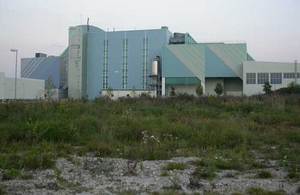Die Trennung von Kirche und Staat ist nicht so deutlich in Deutschland. Vor der Weimarer Republik waren sie nicht so richtig getrennt, und seitdem gab es keinen absoluten Bruch.
Kommers, in The Constitutional Jurisprudence of the Federal Republic of Germany:
bq. In practice, however, the established churches have continued to enjoy a preferred position in society as past institutional arrangements persist into the present. The church tax is such an arrangement, as is the provision of the Weimar Constitution (Article 137 [5]) carried over into the Basic Law, which treats the main churches as corporate bodies under public law.
(Is the choice of ‘corporate bodies’ rather than ‘corporations’ for Körperschaften an American thing?)
Recorded for my own information: Internationaler Bund der Konfessionslosen und Atheisten e.V. on Privileges of the Churches: English Deutsch
IBKA site (International League of Non-Religious and Atheists … (non-religious what?))
bq. The German judiciary displays ecclesiastical-clerical influences. The Concordat of the German Reich from 1933 and the state concordats (Länderkonkordate) define the relationship between state and church in Germany. They are contradictory to the principle of the separation of church and state. As rehards the Catholic sphere, areas they were entered into on the basis of canon law, the Corpus Iuris Canonici (CIC). Quite evidently, some court judgements were made according to ancient ecclesiastical law. This includes judgements in connection with the “blasphemy clause” (Section 166, German Penal Code), the abortion clause (Section 218, German Penal Code), judgements regarding school prayer and church tax as well as judgements of industrial tribunals under the so-called Right of Tendency clause [Tendenzschutzparagraph; Tendenzschutz means that in media, and in other companies, which besides their economic interests (primarily) pursue intellectual or philosophical objectives (= Tendenz), the rights of the works councils are restricted. The lawmaker justifies this restriction with the supposedly necessary protection of the civil rights and liberties (i.e. freedom of the press) of those, who pursue the intellectual and philosophical objectives of the company; the translator].
bq. In der bundesdeutschen Rechtsprechung sind kirchlich-klerikale Einflüsse nachzuweisen. Das Reichskonkordat von 1933 sowie Länderkonkordate bestimmen das Verhältnis von Staat und Kirche in Deutschland. Sie widersprechen dem Trennungsgrundsatz. Für den katholischen Bereich sind sie auf der Grundlage des kanonischen Rechts, des Corpus Iuris Canonici (CIC) abgeschlossen worden. Es gibt Gerichtsurteile, bei denen ganz offensichtlich nach altem Kirchenrecht verfahren wurde. Zu erwähnen sind Urteile im Zusammenhang mit dem “Gotteslästerungs-Paragraphen” (§ 166 StGB), dem Abtreibungs-Paragraphen (§ 218 StGB), Urteile zu Schulgebet und Kirchensteuer, und Arbeitsgerichtsurteile nach dem so genannten Tendenzschutzparagraphen.












